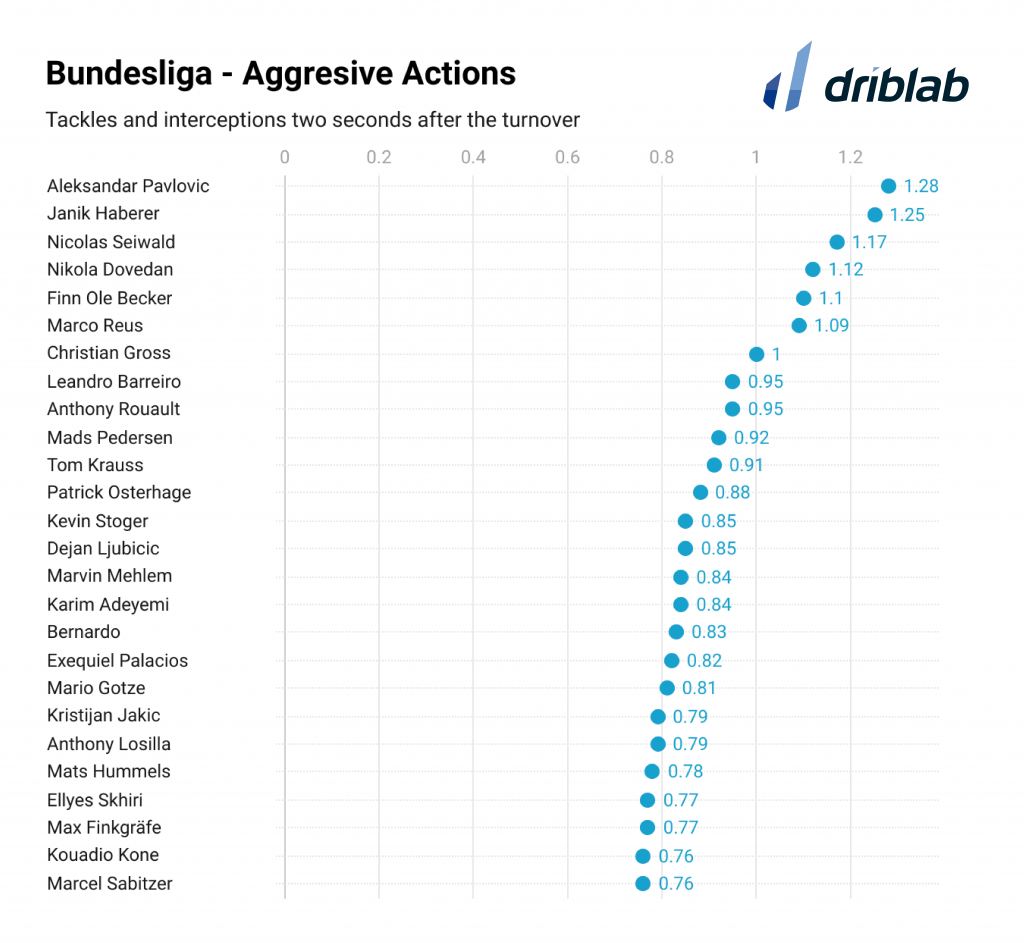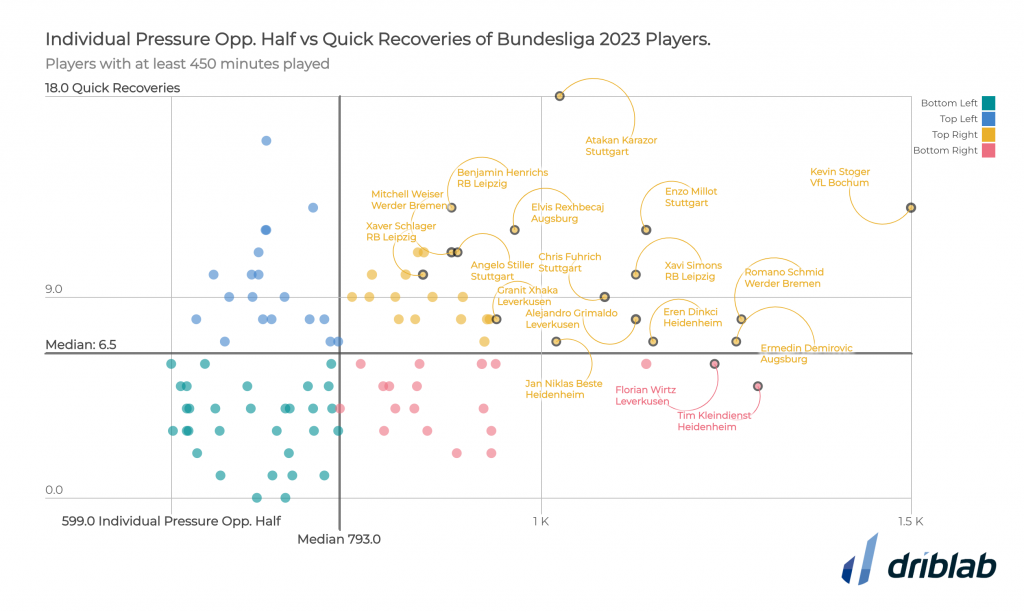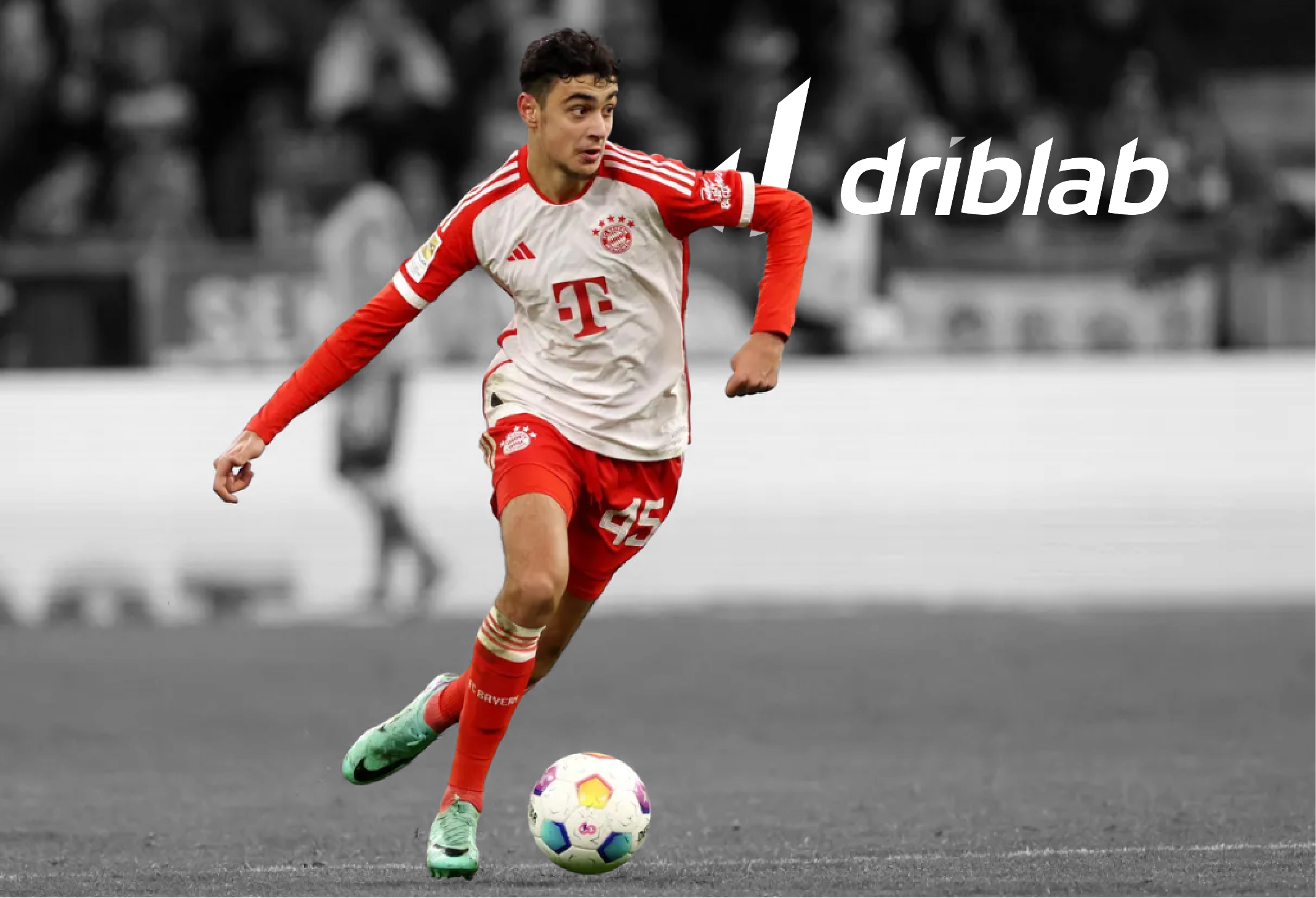Like a file within another, data has the capacity to create layers of depth within the same concept. Regarding pressure on the opponent, which is so frequent and assimilated in today’s football, and as we have done on other occasions, crossing defensive actions performed seconds after a ball loss complements us more and better any other action we want to analyze regarding an individual player’s pressure.
To give more value to those who best apply pressure, this time we will turn to the championship that has sparked the current era of organized teams, designed and armed through pressure: the Bundesliga. The championship that embraces the RedBull method and the legacy of the entire process that led Ralf Rangnick or Jürgen Klopp to be named fathers of gegenpressing.

Regarding Aggressive Actions, the extraordinary performance of the newcomer to Bayern, Aleksandar Pavlovic, stands out, a midfielder who ranks as the player who performs the most pressing actions within the two seconds following his team’s ball loss. Depending on the style and aggressiveness of the pressure, we can find players from all positions, but forwards and midfielders are the most common. One of the great surprises of the season in Germany, that of a Pavlovic who seems prepared to adapt to the demands of the German giant.
Our Quick Recoveries metric indicates recoveries made 40 meters or more from the own goal in the following five seconds after the loss. If we cross this metric on a scatter plot with our Individual Pressure model, we can find parameters and behaviors in players regarding their way of retrieving the ball as soon as possible.

We will find that it fits that Kevin Stoger or Chris Fuhrich are located in the upper right quadrant, where the maximums intersect. We will be surprised by the energy and commitment of Xavi Simons, raised and educated under the orders of Marco Rose, creator of one of the best pressures in all of Europe. But above all, we will find the four Stuttgart midfielders setting the pace for the highest recoveries in the Bundesliga, which has earned them a fight for a spot in the upcoming Champions League.
Founded in 2017 as a consultancy, Driblab has driven innovation through data in all aspects of professional football. Thanks to a transversal model, its database collects and models statistics in all directions. From converting matches and videos into bespoke data for training academies to developing cutting-edge technology, helping clubs, federations and representative agencies in talent scouting and transfer markets. Driblab’s smart data is used by clubs all over the world, with success stories such as Dinamo Zagreb, Real Betis and Girondins Bordeaux among others. Here you can find out more about how we work and what we offer.














